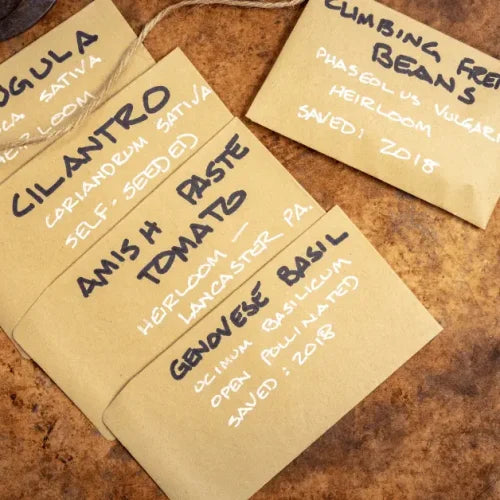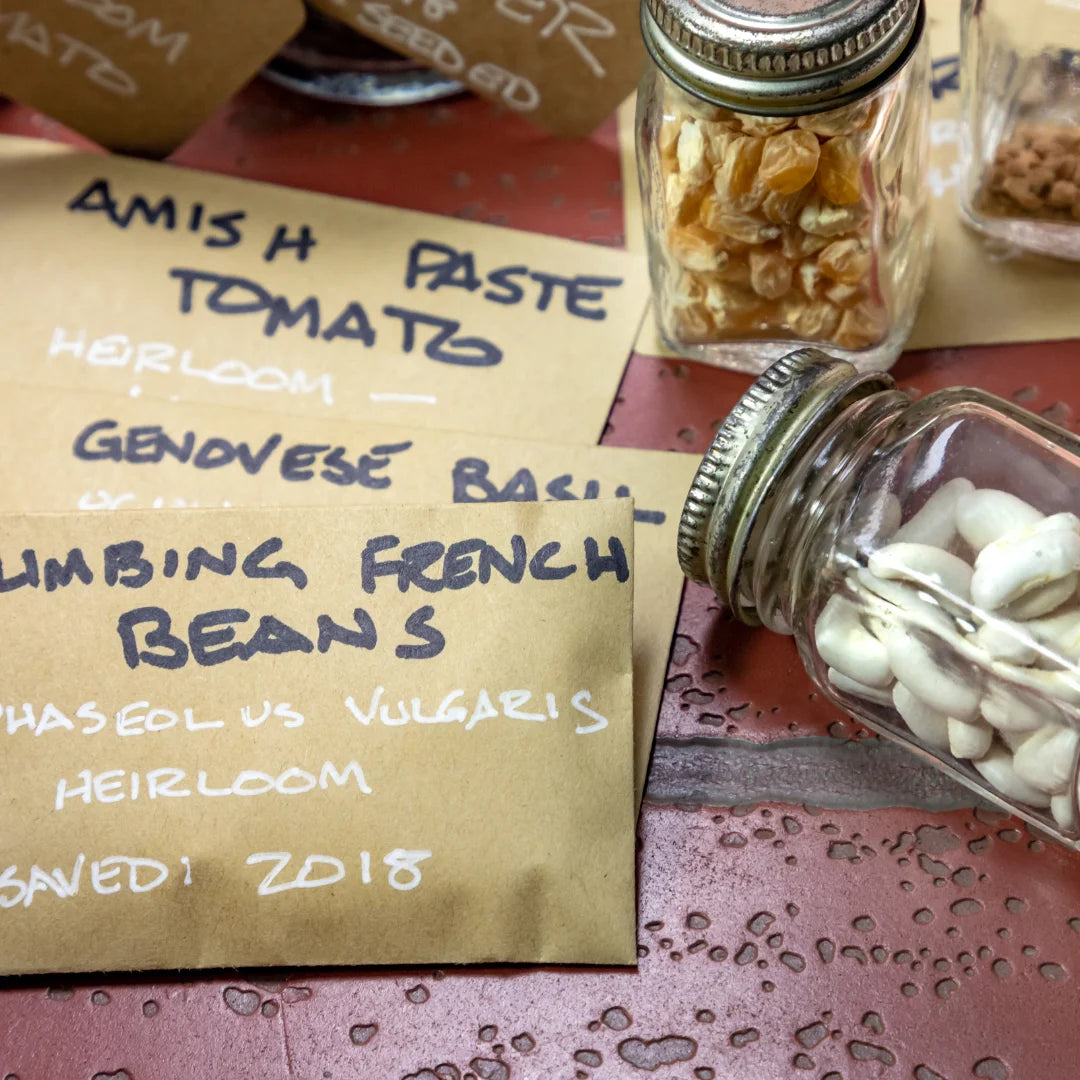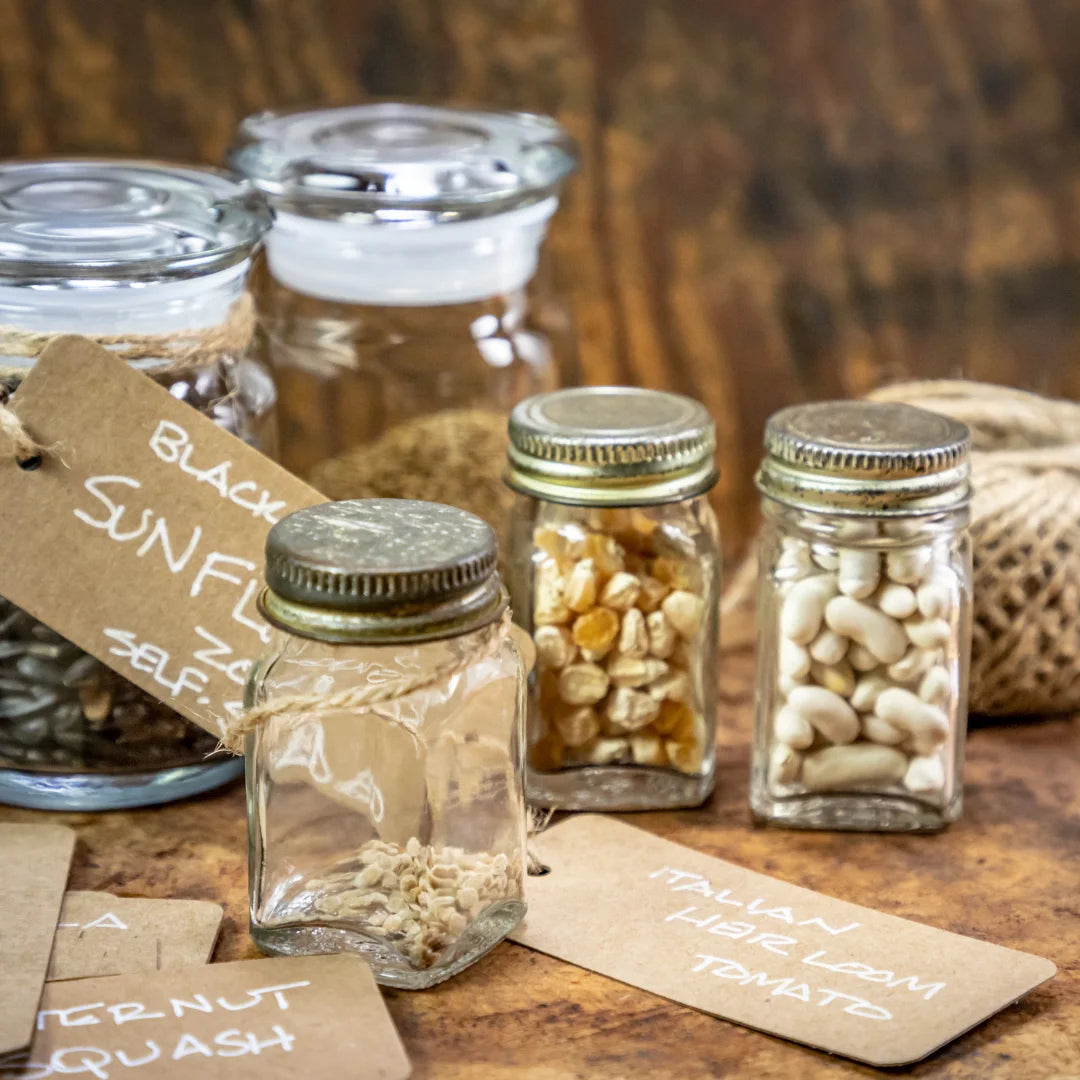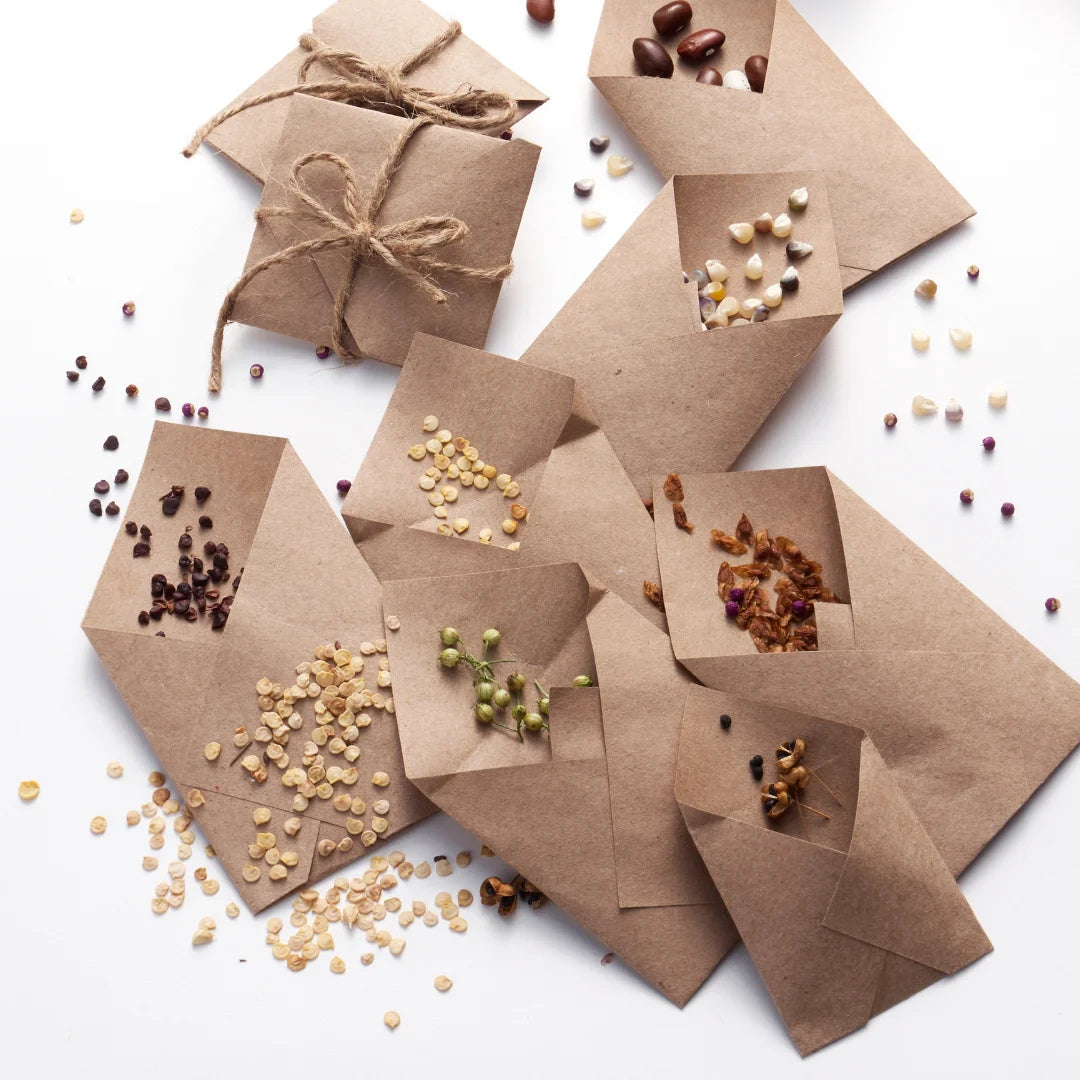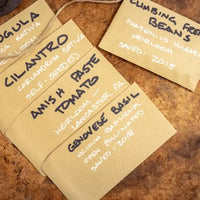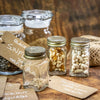Heirloom seeds have a rich history and importance that span hundreds of years. In fact, it’s estimated that over 94% of all vegetable varieties from before the 20th century have gone extinct! This is why preserving heirloom seeds has become so important to food security and diversity in recent decades. With this article, we will explore the fascinating story behind these invaluable resources and their role in protecting our planet’s health.
The origins of heirloom seeds can be traced back centuries ago when farmers grew crops for generations without any external interference or hybridization. These families would keep seed collections that were passed down through the generations as part of an ancient tradition known as “seed saving” – something that helped safeguard against crop failure due to weather events or other natural disasters. As time moved on however, modern farming practices began to take precedence and many traditional seed varieties disappeared forever – leaving us with only a fraction of what was once available to humanity.
Fortunately, there are still some people who recognise the value of these precious resources and continue to work diligently towards preserving them for future generations. By doing so, they ensure that we not only benefit from a greater variety of delicious foods but also help protect our environment by promoting biodiversity and providing sustainable methods for agricultural production. We’ll discuss more about the importance of heirloom seeds later on in this article; but first let’s take a look at how this amazing practice became such an integral part of human culture throughout history!
Definition Of Heirloom Seeds
What an interesting coincidence! Have you ever heard of heirloom seeds? Heirloom seeds are a type of organic seed that have been passed down for generations. They have great potential benefits and are essential to maintain the biodiversity of crops. Let’s explore what makes them so special.
Heirloom seeds come from open-pollinated plants, meaning their genetic composition is preserved through generations as they self-propagate year after year. This typically involves saving some of the crop’s produce as seed stock for replanting in future seasons. The resulting gene pool becomes incredibly diverse and no two batches are exactly alike — making these seeds truly unique!
But it isn’t just about variety; there are some real advantages to using heirloom seeds over hybrid or GMO varieties, such as higher nutrient content and better flavour due to improved soil quality, increased resistance to disease, more predictable germination rates, and greater sustainability by reducing reliance on external inputs like fertilisers and pesticides. Plus, with each passing season, growers can develop tailored growing conditions based on their particular climate and local environment — something not possible when relying on corporate suppliers.
These valuable traits make heirloom seeds an attractive option for many growers who want to guard against monoculture farming practices while preserving heritage varieties for future use.
History Of Heirloom Seeds
Heirloom seeds have been a part of life for generations, with their rich history spanning many parts of the world. Heirloom seeds are often passed down through families and communities as they hold special significance. In Australia alone, heirloom seed varieties can be traced back to the early 1800s.
These days, you don’t need to rely on family tradition when it comes to getting your hands on some heirloom seeds – there’s plenty of heirloom seeds for sale online! The variety of these kinds of seeds has grown exponentially over recent years. You can find countless different types available, from bright red tomatoes to sweet-tasting melons.
But how do heirloom seeds differ from regular or hybridised ones? Generally speaking, traditional heirlooms tend to be open-pollinated varieties that have remained unchanged over time – meaning they’re closer to nature than other types of seed. This makes them highly sought after by gardeners looking for organic options in their backyard plots.
Advantages Of Heirloom Seeds
Heirloom seeds are a special kind of seed with a long and important history. Just like the heirlooms passed down through generations, these hardy varieties have been preserved for centuries due to their unique characteristics. While some may argue that hybrid seeds offer greater yields and decreased pest problems, there are numerous advantages associated with heirloom seeds which make them worth considering when looking at planting options.
One benefit of using heirloom seeds is the range of flavours they can provide. Unlike hybrids, heirloom plants retain their flavour across generations so you can enjoy an array of tastes not found in other types of produce. For example, if you grow tomatoes from heirloom seeds, each tomato will be as flavorful as its ancestors! This means that your garden will always contain delicious fruits and vegetables while providing variety throughout the season.
Another advantage of using heirloom seeds is that they tend to be better adapted to local regions. Since many hybrid varieties were bred outside of their native habitat, they often lack the ability to withstand extreme weather conditions or pests common in certain climates. Heirlooms on the other hand have evolved over time to thrive in specific areas; this allows them to naturally resist disease and insects without needing synthetic chemicals or fertiliser inputs. Additionally, since most heirlooms are open-pollinated (meaning bees contribute to pollination), no two crops grown from different sources should look exactly alike – resulting in interesting shapes and sizes!
In addition to these benefits, it’s also important to consider how sustainable heirloom farming practices are compared to those involving Hybrid varieties. Selecting locally-adapted strains helps reduce our reliance on large scale industrial agriculture by decreasing transportation needs while preserving genetic diversity within our food system. Plus, more people around the world can access quality organic produce without having to break the bank – something that isn’t possible with highly processed Hybrid products available today. So next time you’re thinking about what type of seed to plant in your garden, remember all these great reasons why choosing an Heirloom variety might just be the best choice!
Disadvantages Of Heirloom Seeds
Time-honoured heirloom seeds have been around since the days of antiquity, anachronistically making their way into modern day gardens. From bunnings to small family farms, people are taking notice of this age old tradition and its potential for the future. Yet there are some drawbacks that come with using heirloom seeds.
For starters, many varieties of heirloom seed have a shorter shelf life than other types of seed due to their lack of preservatives or processing materials; meaning they may not be able to be stored for as long before being used up or going bad. This can cause difficulty when attempting to purchase enough in one go from places like bunnings. Additionally, these seeds often require extra care during planting and germination, such as more frequent watering and careful soil manipulation techniques – something which might prove difficult for those who don’t possess specialised knowledge on gardening practices.
Lastly, though these particular types of seed can produce plants with superior taste and texture compared to hybrids, they also tend to yield far less produce per plant over time thus proving inefficient if you’re looking at it strictly from a monetary standpoint.
Despite all this however, heirloom seeds remain popular within the growing community given their rich history and importance; thus leading us into our next inquiry: Are Heirloom Seeds Organic?
Are Heirloom Seeds Organic?
Are heirloom seeds organic? This is an important question to consider when evaluating the disadvantages of these special seeds. Heirloom seed varieties are often associated with eco-friendly, hybrid farming practices – but does that mean they’re always organic? To get a better understanding of this topic, let’s break it down further.
Organic heirloom seeds come from plants grown without pesticides or chemical fertilisers. They are harvested in ways that minimise damage to the environment and maximise their nutritional content. While there is no legal definition for organic heirloom seeds, many growers have adopted certified organic standards in order to ensure the highest quality product possible. These standards include only using natural composting methods and avoiding any form of genetic engineering or modification.
On the other hand, not all heirloom seed varieties are necessarily organic. Some may contain traces of harmful chemicals due to growing conditions or storage requirements; others may be hybrids created through cross-breeding techniques that are considered unnatural by some consumers. It’s important for buyers to do research on where their heirloom seeds originated so they can make informed decisions about which ones would best fit their needs and preferences while still taking into account any potential health risks or environmental impacts.
Ultimately, whether you choose organic or non-organic heirloom seed varieties comes down to personal preference and values – as well as your willingness to invest time into researching each option before making a purchase decision. By weighing up both the advantages and disadvantages carefully, you’ll be able to select the most suitable variety for your gardening project and enjoy its rich history with peace of mind! Now let’s take a look at how we can benefit from planting these unique types of seeds…
Benefits Of Heirloom Seeds
Heirloom seeds are like a time capsule, preserving cultures and flavours from the past. They evoke nostalgia for simpler times, when gardens were tended more lovingly and the fruits of one’s labour came in the form of delicious vegetables. The benefits of these unique seeds go far beyond their simple beauty – they offer an opportunity to take part in something much bigger than yourself.
From genetic diversity to nutrition content, heirloom varieties have been found to be superior to regular, mass-produced options sold at stores such as Bunnings. These traditional varieties contain natural resistance to diseases and pests that would otherwise require chemical treatments or other forms of intervention. Their higher nutrient density also makes them especially beneficial for those looking to lead healthier lifestyles.
The fact that heirloom seeds can be passed down through generations has its own special significance too; it’s an invitation to join a long line of gardeners whose successes live on even after they have gone. Growing your own “heritage” vegetables adds another layer of meaning by connecting you with your family history and giving you a chance to honour those who came before you.
With all these amazing advantages, it is no wonder why so many people choose heirloom seeds over regular ones – but how do the two types compare?
Comparison Of Heirloom Seeds Vs Regular Seeds
Heirloom seeds are like a treasure trove of history and knowledge, passed down through generations to preserve the unique flavours and benefits that regular seeds simply can’t match. To understand the advantages of heirloom seeds over regular ones, it’s important to look at what sets them apart from one another.
Generally speaking, heirloom seeds come with distinct characteristics such as shape, colour, texture and flavour; all these attributes can be traced back for centuries. They have been bred naturally in the same environment for hundreds of years which makes them more resistant to pests and diseases than their commercial counterparts. Heirlooms also tend to produce higher yields due to their adapted genetics. Finally, they provide genetic diversity – something that is becoming increasingly rare in today’s world but critical for future food security.
On the other hand, regular or hybridised seed varieties offer certain advantages too – mainly convenience and cost savings. For example, hybrids often grow faster and uniformity allows farmers who use them access to large scale production techniques with less effort required when it comes time for harvest. Additionally, some hybrids may also yield larger fruit size compared to heirlooms making them attractive options if you need large volumes quickly for sale or storage purposes.
In comparison then, there are clear differences between heirlooms and regular seeds with each offering its own set of pros and cons depending on the situation. By considering both factors carefully before selecting your next crop variety you can ensure that you reap maximum benefit from whichever option you choose…
Comparison Of Heirloom Seeds Vs Hybrid Seeds
When it comes to comparing Heirloom Seeds with Hybrid Seeds, there is a lot to consider. Both types of seeds offer advantages and disadvantages in their own right. It’s important to understand the difference between them before making any decisions about what type of seed you should use for your next gardening project.
Heirloom Seeds have been around for centuries, so they are well-known for being reliable sources of produce that can be harvested year after year without having to buy new batches each season. However, these seeds may not always be as easy to come by as regular or hybrid varieties since many heirlooms need special care when it comes to sowing and harvesting. Bunnings has recently started stocking some rarer heirloom varieties, helping make them more accessible to home gardeners who want something unique in their gardens.
On the other hand, Hybrid Seeds often boast higher yields than regular or heirloom varieties due to genetic engineering which makes them resistant against pests and diseases. This means less time spent managing problems like weeds or moulds! Unfortunately, this also means that hybrid plants won’t breed true – meaning if you save the seed from one season and try planting it again later on, chances are you’ll end up with something different than what you planted originally.
Considering both options carefully will help ensure we get the best possible results out of our gardening projects; whether that’s choosing an heirloom variety for its nostalgic appeal or going with hybrids because of their better yield potential! In terms of availability, Australia now offers plenty of choices thanks largely to places like Bunnings offering rarer heirloom selections alongside more common ones.
Availability Of Heirloom Seeds In Australia
Purchasing heirloom seeds in Australia can be a perplexing pursuit. Not only is there the challenge of finding them, but also determining whether they are worth it and making sure that they will grow as expected. Here we dive into the availability of heirloom seeds Down Under, discussing their prevalence at Bunnings, drawbacks, and more.
Planting with personality is possible for Australian gardeners; however, many find themselves short on sources when searching for heirloom seeds locally. Popular hardware store chain Bunnings does not stock these specialised products as part of its regular assortment. Thus, shoppers must look beyond brick-and-mortar stores to acquire heirloom varieties – or take advantage of online resources such as seed banks which offer an extensive selection from around the world.
Though purchasing from afar has its perks (such as access to rare finds), there are some disadvantages to consider before investing in international orders. The cost of shipping may be expensive; plus, buyers cannot easily confirm the quality or authenticity of their offerings until receiving them in person – if even then! If this uncertainty is unappealing to potential purchasers, seeking out local suppliers could prove more fruitful for locating trustworthy options – though this too requires research and legwork!
Ultimately, acquiring heirloom seeds in Australia can be a tricky task due to limited retail availability and other factors – yet it’s still possible with patience and persistence. By taking the time to locate reputable sellers both near and far, gardeners have the opportunity to bring unique plants home irrespective of location constraints.
Availability Of Heirloom Seeds At Bunnings
It’s no surprise that Australians are passionate about gardening. In fact, a recent survey found that 70% of Australian households had at least one person who identified as an avid gardener! This means finding the right kind of seeds is more important than ever – particularly heirloom seeds which have been passed down from generation to generation and offer unique genetic variations from hybrids or GMOs. So how easily available are heirloom seeds? Let’s take a look at their availability at Bunnings.
Heirloom seed varieties can be found in most large garden centres such as Bunnings, making them accessible to all types of consumers. While they may not always carry every single variety you’re looking for, they usually stock a wide range of different vegetables and flowers with heirloom genetics. Additionally, many stores will also offer advice on the best way to grow these types of plants so customers get the most out of their purchase.
Bunnings has made it easier than ever to find heirloom seeds with their online store where shoppers can browse through hundreds of different options quickly and conveniently. Customers can even pick up tips on sowing techniques or learn more about the history behind specific varieties before adding them to their cart. All this makes it simple for anyone interested in starting a new project using traditional methods of preserving family legacies by growing heritage plants.
Fortunately, finding high-quality heirloom seeds is now much less daunting than it used to be – especially when shopping at Bunnings. With its vast selection and helpful customer service staff, it’s easy to see why many people turn there when searching for specialised items like these….
Finding Heirloom Seeds For Sale
If you’re looking to buy heirloom seeds for your garden, then you may have found yourself wondering where to start. Bunnings is a great place to begin your search – they have a wide selection of these special seeds and can be easily accessed from many locations across the country. But what if there’s something specific that you want? In this case, finding heirloom seeds for sale online might just be the answer!
When it comes to buying heirloom seed varieties online, you’ll find plenty of options out there. From specialty stores to farmers’ markets or even eBay, there are lots of places to explore when it comes to sourcing high-quality heirloom seeds. Many suppliers offer discounts or free shipping too – making it an affordable way to get exactly what you need in one go. Plus, with so much choice available, you can make sure you pick up some real gems without breaking the bank.
From climbing beans and sweet corn through to tomatoes and squash – purchasing heirloom seeds online has never been easier or more convenient. With careful research into reputable vendors and ensuring that your order meets all relevant health regulations – getting hold of those hard-to-find varieties is within reach! By doing a bit of digging around on the internet, you should soon find enough inspiration for any gardening enthusiast’s needs.
No matter how old or rare the variety may be–with a little patience and dedication–you can discover some truly remarkable plants by shopping online for heirloom seeds! Now let’s take a look at their nutritional benefits…
Heirloom Seeds And Their Nutritional Benefits
Heirloom seeds are a precious resource, their rich history and importance to humanity ingrained in each tiny seed. Like a secret kept through the ages, these special heirlooms have been passed down from generation to generation. Now it’s time they reap the rewards of all that careful tending! Not only do heirloom seeds offer us an opportunity to connect with our heritage, but they also boast impressive nutritional benefits as well.
These ancient varieties of plants typically contain more antioxidants, vitamins and minerals than modern hybrids: perfect for those looking for nutrient-rich options when cooking up meals. Furthermore, some studies suggest heirloom varieties may even be beneficial for gut health due to higher concentrations of fibre. All this nutrition packed into such small packages – no wonder why so many are turning back towards these traditional methods!
The resurgence of interest in heirloom seeds is not just about nostalgia or connecting with past generations; there’s also something undeniably powerful about knowing exactly what we’re consuming and where it comes from. With their deep roots in both culture and nutrition, it’s easy to see why these humble little packets are enjoying renewed recognition today. Onward then – let’s explore how else heirloom seeds can help us live healthier lives…
Heirloom Seeds And Their Resistance To Disease
It is estimated that anywhere from 75-90% of the world’s crop varieties have become extinct due to a lack of care and cultivation, most notably heirloom seeds. While we may be familiar with their nutritional benefits,heirloom seeds are also highly resistant to disease. This resistance makes them ideal for those who want an organic and sustainable form of gardening or farming without having to worry about common diseases affecting the produce.
Heirloom seeds can be quite resilient when it comes to certain kinds of disease and pests, however there are still some disadvantages associated with this type of seed as well. Many heirloom varieties do not possess the same level of uniformity in terms of size, shape and colour like many genetically modified crops which can lead to difficulties in harvesting and more labour intensive work overall. Furthermore, they often require additional protection against storms, drought and other environmental factors which can make them difficult to maintain over time.
Despite these challenges, heirloom seeds remain popular amongst farmers because they provide a greater diversity in terms of flavour, texture, nutrients and even colour compared to hybrid or GMO varieties available today. By investing properly into the maintenance and upkeep of these types of seeds, growers can ensure that their harvests will remain plentiful for years to come while preserving their unique genetic heritage at the same time. Taking all this into account, it is clear why so many people continue to use heirloom seeds despite their potential drawbacks – Their ability to adapt quickly to changing climates is unparalleled by any other variety on earth.
Heirloom Seeds And Their Ability To Adapt To Climate Change
In this day and age, where climate change is becoming an ever-growing concern, the adaptability of heirloom seeds has taken on a newfound importance. As we strive to create sustainable solutions for our environment, it’s vital that these ancient seeds continue to play their part. Metaphorically speaking, they are humankind’s hidden heroes in the fight against global warming.
So what makes heirloom seeds so special? Firstly, it’s important to note that all of them have been passed down from generation to generation since time immemorial; thus making them far more resilient than many other varieties currently available. This coupled with their superior ability to survive extreme conditions or sudden shifts in temperature make them particularly suitable for responding quickly to changes caused by climate change. Their adaptability ensures that no matter how unpredictable the weather may be, heirloom seeds are able to sustain themselves and ultimately thrive under any circumstances.
This remarkable characteristic also allows farmers to cultivate crops in areas which were previously too hostile – something which is key when trying to meet growing demand while maintaining minimal human intervention. In fact, many experts believe that such resilience could even help keep food supplies secure during times of drought or extreme heat waves – both scenarios predicted by scientists studying potential effects of climate change in certain parts of the world. Without a doubt, heirloom seed varieties should remain at the forefront of agricultural innovation as we seek ways to mitigate environmental damage and ensure future generations can benefit from their impressive qualities.
Saving Heirloom Seeds For Future Generations
As time passes, the preservation of heirloom seeds is more critical than ever. Like a precious gem handed down from generations, these unique and valuable assets must be safeguarded for future generations to come; as if they were passed on through an unspoken oath. Saving heirloom seeds provides us with a wealth of opportunities that can help ensure a brighter tomorrow – while also preserving our rich agricultural heritage.
The importance of saving heirloom seeds goes beyond just its ability to adapt to climate change; it allows us to maintain the integrity of plant genetics and biodiversity which are essential components in any healthy food system. Heirloom seed varieties have been proven to possess higher levels of nutrition, flavour, and even beauty compared to conventional or modern varieties.
For those interested in contributing towards preserving this invaluable resource, there are several steps you can take: seek out local seed savers’ networks where like-minded individuals may exchange their knowledge and supplies; join organisations dedicated to supporting sustainable agriculture such as Seed Savers Exchange or Native Seeds/SEARCH; start your own collection by storing them properly in airtight containers away from direct sunlight; or donate some of your saved seeds back into the community for others to enjoy!
TIP: Be sure you research each variety thoroughly before collecting and planting so you know exactly what type of environment will best suit them – this will help make sure that when it’s time for harvesting, you’ll be able reap the rewards!
Frequently Asked Questions
Can I Grow Heirloom Seeds In A Container Garden?
Growing food in containers has become increasingly popular, and as a result, many people are wondering if they can grow heirloom seeds in their container gardens. Heirloom seeds offer gardeners the opportunity to cultivate plants with amazing flavour, rich history and importance that have been passed down through generations. Growing these types of seeds is not only rewarding but also offers us an appreciation for the different varieties available today.
Gardening expert advice suggests that certain steps must be taken when growing heirloom seeds in containers. Container soil needs to be high quality and well-draining so it doesn’t retain too much moisture or dry out completely. It’s best to opt for smaller containers because heirlooms require more frequent watering than other hybrid seed variants due to their larger root systems. Additionally, planting should take place during times of ideal temperatures as extreme weather conditions can affect germination rates. Finally, gardeners will need to pay special attention when fertilising since over-fertilising may lead to stunted growth or poor yields from your harvestable crops.
With careful consideration and planning, you will find success when growing heirloom seeds in your container garden! With just some extra effort given towards selecting the right pots, soil mix, temperature range and fertilisers – you’ll soon be reaping the benefits of cultivating delicious veggies with deep roots in historical meaning and significance.
How Long Do Heirloom Seeds Stay Viable?
Heirloom seeds are a wonderful way to keep our history alive and connected with the land. But how long do these precious seeds stay viable?
Preserving heirloom seed is no easy task, as many factors can affect their longevity. Temperature changes, moisture levels, air quality – all of these have an impact on the shelf life of heirloom seeds. However, if stored in properly sealed containers in cool, dry environments, some seeds can remain viable for up to five years or even longer!
This means that we have time to appreciate and honour our ancestors’ efforts while learning more about traditional varieties of vegetables, fruits and grains. Plus, it’s incredibly rewarding to be able to save money by growing your own produce from the same kinds of plants they did centuries ago. So don’t let those treasured heirloom seeds go to waste; store them safely so you can enjoy their benefits now and in the future!
How Do I Know If A Seed Is An Heirloom Variety?
Figuring out if a seed is an heirloom variety can be quite tricky. After all, some manufacturers will label their seeds as ‘heirlooms’ even when they’re not! So how do you make sure that the seed packet in your hand contains genuine heirloom varieties? It’s important to know, since these types of old-fashioned plants bring with them a rich history and contribute greatly to our shared cultural heritage.
The first step is to look for certification labels on the packaging. These certifications indicate that the seed supplier has met certain criteria regarding what constitutes a true heirloom plant. This can include information about the origin of the seeds and how long it takes for them to reach maturity. If there are no certifications listed, then it may be worthwhile doing a bit more research into the company selling them.
Once you’ve confirmed that the seed packet does contain certified heirloom varieties, take some time to learn about its background. Heirloom plants have been passed down from generation to generation – each one carrying unique stories, memories and lessons over hundreds of years. By understanding this legacy of knowledge, we preserve these treasured pieces of horticultural history for future generations too.
So whether you’re looking for vegetables or flowers, taking the time to verify that your seeds are indeed authentic heirlooms helps us keep alive this invaluable source of biodiversity and culture – now and into the future.
What Are The Best Growing Conditions For Heirloom Seeds?
Heirloom seeds are incredibly special, with a rich history and importance that spans generations. But for these precious little gems to produce the bounty of crops they promise, it is crucial to know what conditions best promote their growth.
One key factor in growing heirloom varieties successfully is soil quality; nutrient-rich soil allows plants to absorb essential nutrients needed for vigorous growth. Additionally, adequate drainage helps ensure water isn’t retained excessively—which can cause root rot or other issues—while also ensuring enough moisture remains present in the soil. A combination of different types of fertiliser like manure composted with leaves or grass clippings can help supplement any mineral deficiencies in the soil as well.
Lastly, proper spacing between each seedling will ensure air circulation amongst them and reduce competition for resources from overcrowding – something important given how delicate some heirloom species can be. With this knowledge at hand, growers have all the tools necessary to create an environment where their beloved heirloom varieties thrive.
Can I Replant Heirloom Seeds From A Previous Harvest?
Heirloom seeds are a special part of our history and culture, but can they be replanted from one harvest to the next? Juxtaposed with other forms of gardening, heirloom seed saving offers a unique opportunity for preserving our heritage. It’s not only about enjoying your own individual crop year after year; it’s also about passing these precious gifts down through generations.
In order to save and successfully replant heirloom seeds, you must take several growing conditions into account. First of all, warm temperatures and ample sunlight help ensure that each seed germinates properly. Secondly, soil should consist of plenty of organic matter in order to provide adequate nutrition for the plants as well as keep them hydrated throughout their lifecycle. Additionally, having an appropriate amount of water is essential so that the seeds don’t dry out prematurely before sprouting or reach maturity too soon due to overwatering.
Finally, proper storage is another key element for ensuring successful heirloom seed replication. Keeping the harvested seeds in sealed containers away from moisture and extreme temperatures will allow them to remain viable for many years. In addition, storing them in a cool dark place is best since this helps prevent any unwanted pests from coming in contact with the valuable material within.
By following these steps closely and carefully tending to each step along the way, we can preserve heirloom varieties while still being able to enjoy fresh produce every season—a great reward for those who desire to serve others by protecting our rich cultural heritage!
Conclusion
In conclusion, heirloom seeds are a valuable part of the gardening world. They carry with them rich history and stories that can be passed down for generations to come. I have found it to be an incredibly rewarding experience to plant and harvest these beloved varieties each season. As I prepare my vegetable beds at the start of each new cycle, I feel as if I am connecting with people of long ago who worked hard so we could enjoy their cherished plants today. Growing heirloom seeds is like stepping back in time; they provide us with an opportunity to appreciate where our food comes from and how far we’ve come in terms of agricultural practices. Heirloom seeds remind me that although times may change, certain traditions should never be forgotten.


